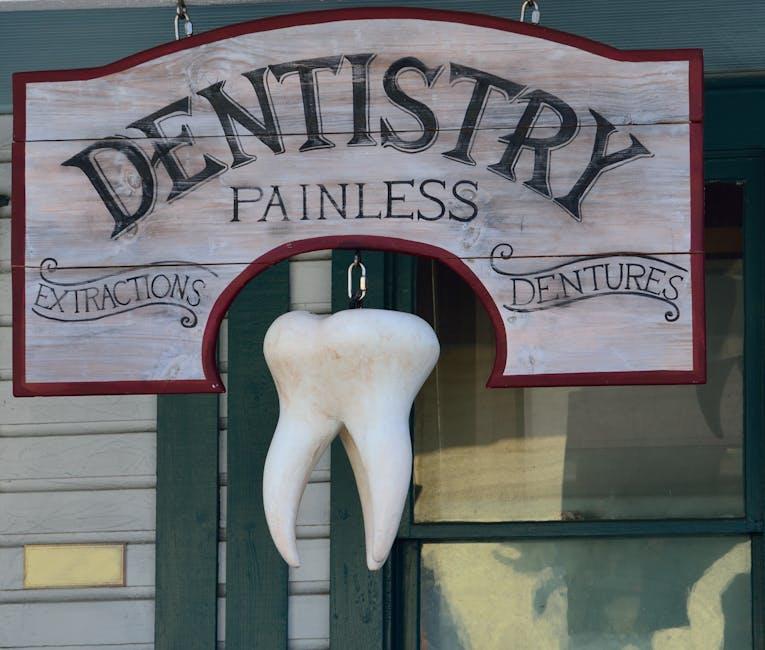
House Bill Introduced to Expand Access to Dental Care – American Dental Association
Access to quality dental care remains a significant challenge for many Americans, especially those in underserved communities. Recognizing this, the American Dental Association (ADA) has welcomed a new House bill introduced to expand access to dental care. This legislation represents an important step forward in addressing oral healthcare disparities and improving overall health outcomes nationwide.
Introduction: The Need for Expanded Dental Care Access
The link between oral health and general health is well documented, yet millions of Americans lack access to essential dental services. Factors such as cost, geographic availability, and insurance limitations contribute to these gaps. The introduction of this bill aims to tackle these barriers head-on, supporting efforts to make dental care affordable, accessible, and equitable.
Overview of the House Bill to Expand Dental Care Access
This House bill, backed by the ADA and bipartisan lawmakers, is designed to address systemic issues related to dental healthcare access. Key highlights of the legislation include:
- Expanded Medicaid Dental Benefits: Increasing coverage for adult dental care in Medicaid programs nationwide.
- Increased Funding for Community Health Centers: Supporting more dental clinics in rural and urban underserved areas.
- Support for Dental Workforce Development: Providing grants and incentives to train more dental professionals, including dentists, hygienists, and dental assistants.
- Tele-dentistry Expansion: Promoting the use of technology to reach patients in remote locations.
- Enhanced Oral Health Education Programs: Funding public information campaigns on the importance of preventive dental care.
Benefits of the Dental Care Expansion Bill
Passing this bill could transform oral healthcare delivery in the United States by:
- Reducing Health Disparities: Making dental care accessible to underserved populations, including low-income and rural communities.
- Improving Public Health: Preventing chronic conditions linked to poor oral health such as heart disease, diabetes, and stroke.
- Economic Advantages: Lowering long-term healthcare costs by emphasizing prevention and early treatment.
- Workforce Enhancement: Addressing dental provider shortages through workforce investment strategies.
Practical Tips for Advocating Dental Health Access
Whether you’re a dental professional, patient, or concerned citizen, here are practical ways to support expanded dental care access:
- Engage with Local Representatives: Contact lawmakers to express support for the bill and share stories about dental access challenges.
- Educate Your Community: Promote oral hygiene and preventive care through workshops and social media campaigns.
- Leverage Tele-dentistry: Use available technology to connect underserved patients with dental consultations.
- Participate in Volunteer Programs: Join local dental missions or community health initiatives.
Table: Key Provisions of the House Bill at a Glance
| Provision | Description | Impact |
|---|---|---|
| Medicaid Dental Expansion | Extends adult dental benefits in Medicaid programs | Increased treatment access for low-income adults |
| Community Health Center Funding | Boosts grants for clinics in underserved areas | More local dental care providers in need zones |
| Dental Workforce Grants | Funds training and recruitment incentives | Mitigates provider shortages |
| Tele-dentistry Support | Encourages technology use for remote dental care | Expanded reach into rural and underserved regions |
| Oral Health Education | Funds preventive care awareness campaigns | Improved public knowledge and early care |
First-Hand Experience: Voices from Dental Professionals
Many dentists and hygienists have voiced their optimism about the bill. Dr. Linda Hartley, a community dentist in Ohio, states, “Expanding access to dental care is not just about fixing teeth—it’s about building healthier communities. This bill gives us the tools to do just that.” Health professionals emphasize that such legislation can reduce emergency room visits for dental problems and enable preventive treatments that save lives and money.
Case Study: Impact of Medicaid Dental Coverage Expansion in California
California’s recent expansion of adult dental coverage under Medicaid offers promising evidence. Since implementation:
- A 25% increase in regular dental visits among low-income adults was observed.
- Emergency room visits for dental emergencies dropped by 15%.
- Community clinics reported increased patient retention and improved oral health outcomes.
This illustrates how similar policies nationally could yield impactful health and economic benefits.
Conclusion: A Vital Step Toward Health Equity
The introduction of this House bill marks a critical advancement toward making dental care more accessible and equitable across America. Supported by the American Dental Association, the bill addresses key barriers by investing in coverage expansion, workforce development, and modern healthcare delivery methods like tele-dentistry.
By embracing and advocating for these changes, we can help ensure a future where everyone enjoys the benefits of good oral health — a cornerstone of overall well-being. Stay informed, get involved, and support the movement to expand dental care access today.


